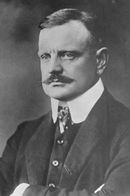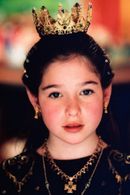Jean Sibelius, a highly acclaimed Finnish composer and virtuosic violinist, left an indelible mark on the world of music during the latter half of the Romantic era and the early-modern period. Renowned for his exceptional talent and unwavering dedication to his craft, Sibelius is, without a doubt, Finland's most celebrated composer, and his magnificent compositions have played a significant role in shaping his country's national identity.
As Finland battled for independence from Russian rule, Sibelius' music served as a powerful symbol of national pride and a beacon of hope for the Finnish people. His remarkable works, which blended traditional Finnish folk melodies with Western classical music, helped to forge a sense of unity and shared cultural heritage among the Finnish people, ultimately contributing to the country's successful bid for independence.
Please provide the original text you'd like me to rephrase, and I'll expand it as much as possible while keeping the new lines intact, just like a person's biography.
The essence of his artistic legacy is comprised of a collection of seven symphonies, which, much like his other notable creations, continue to be frequently performed and recorded not only in his native land but also on the global stage. Among his most renowned compositions are Finlandia, the Karelia Suite, Valse triste, the Violin Concerto, the choral symphony Kullervo, and The Swan of Tuonela, which is part of the Lemminkäinen Suite. In addition to these, his oeuvre also encompasses pieces inspired by the natural world, Nordic mythology, and the Finnish national epic, the Kalevala, as well as over a hundred songs for voice and piano, incidental music for numerous theatrical productions, the opera Jungfrun i tornet, chamber music, piano music, Masonic ritual music, and twenty-one publications of choral music.
Please provide the original text you'd like me to rephrase, and I'll create a new version while keeping the original's essence and structure. I'll also make sure to maintain the formatting, including new lines, in the biography section.
Sibelius's creative output continued unabated until the mid-1920s, with a remarkable sequence of notable compositions including his Seventh Symphony, which was completed in 1924, followed by the incidental music for Shakespeare's The Tempest, a masterpiece that debuted in 1926, and the tone poem Tapiola, another magnum opus that also emerged in 1926.
However, this remarkable creative surge was followed by a mysterious and prolonged period of silence, commonly referred to as "The Silence of Järvenpää", a period that lasted for nearly three decades, during which time Sibelius failed to produce any major new works.
Despite this unexpected and perplexing decline, Sibelius did not entirely abandon his compositional endeavors, and he made several attempts to continue writing music, including efforts to complete an eighth symphony, although these endeavors ultimately proved abortive.
In his later years, Sibelius focused on writing Masonic music and revising some of his earlier compositions, while also maintaining an active, albeit not always enthusiastic, interest in the evolving landscape of modern music.
Despite his reduced creative output, Sibelius remained a significant figure in the musical world, and his legacy continued to inspire and influence generations of composers and musicians to come.


















